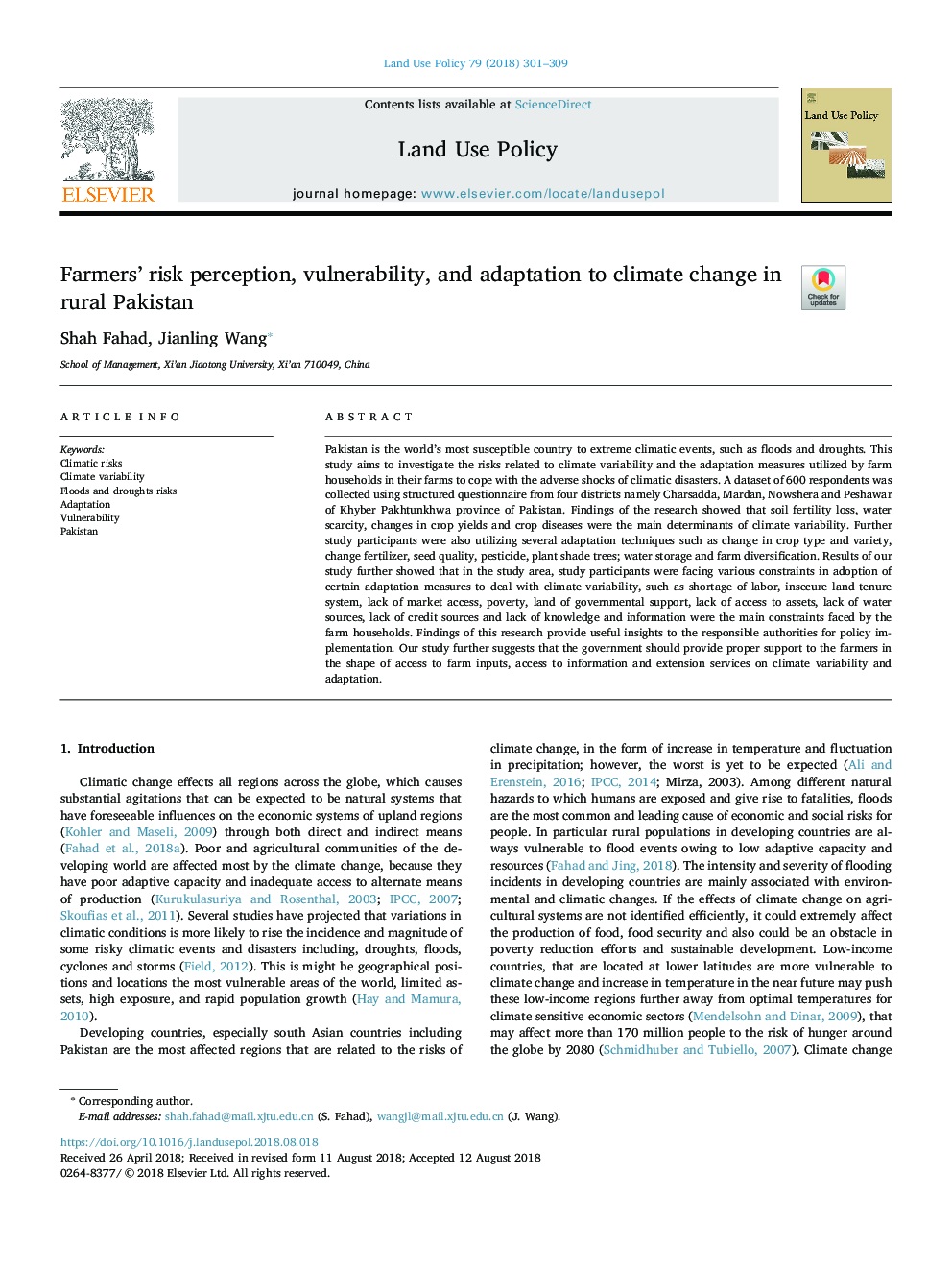| Article ID | Journal | Published Year | Pages | File Type |
|---|---|---|---|---|
| 11000071 | Land Use Policy | 2018 | 9 Pages |
Abstract
Pakistan is the world's most susceptible country to extreme climatic events, such as floods and droughts. This study aims to investigate the risks related to climate variability and the adaptation measures utilized by farm households in their farms to cope with the adverse shocks of climatic disasters. A dataset of 600 respondents was collected using structured questionnaire from four districts namely Charsadda, Mardan, Nowshera and Peshawar of Khyber Pakhtunkhwa province of Pakistan. Findings of the research showed that soil fertility loss, water scarcity, changes in crop yields and crop diseases were the main determinants of climate variability. Further study participants were also utilizing several adaptation techniques such as change in crop type and variety, change fertilizer, seed quality, pesticide, plant shade trees; water storage and farm diversification. Results of our study further showed that in the study area, study participants were facing various constraints in adoption of certain adaptation measures to deal with climate variability, such as shortage of labor, insecure land tenure system, lack of market access, poverty, land of governmental support, lack of access to assets, lack of water sources, lack of credit sources and lack of knowledge and information were the main constraints faced by the farm households. Findings of this research provide useful insights to the responsible authorities for policy implementation. Our study further suggests that the government should provide proper support to the farmers in the shape of access to farm inputs, access to information and extension services on climate variability and adaptation.
Related Topics
Life Sciences
Agricultural and Biological Sciences
Forestry
Authors
Shah Fahad, Jianling Wang,
